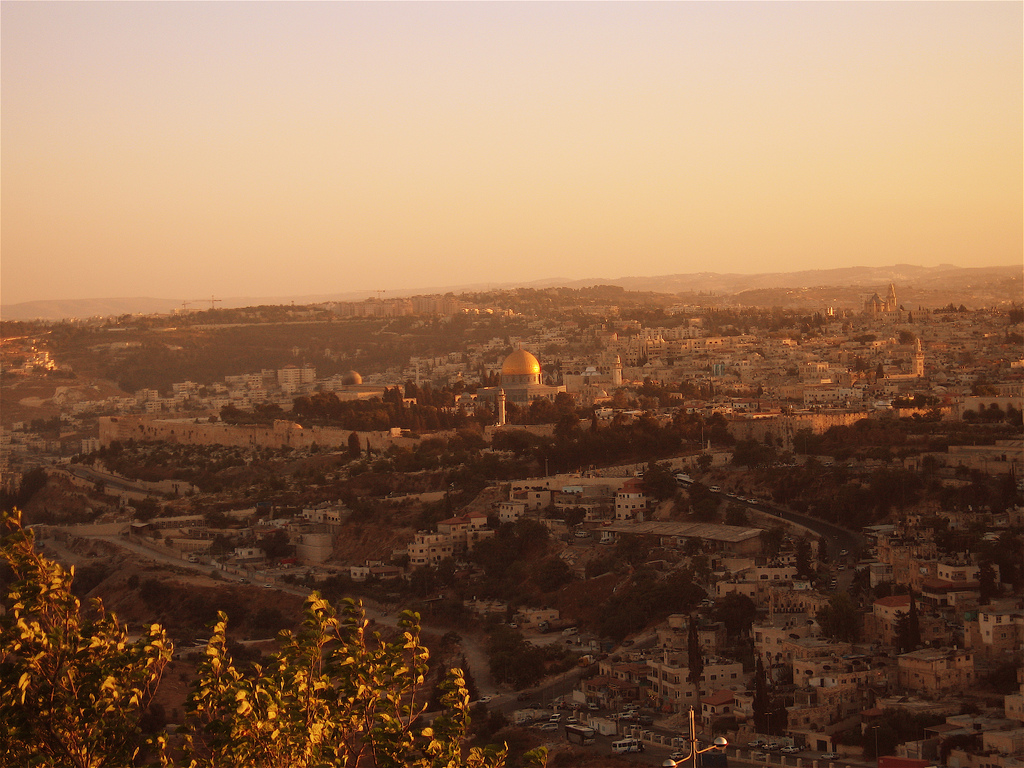
Friend of My Youth Group
The night of the Palmach reenactment I’d been told to wear pants but I didn’t follow instructions and was wearing pink shorts again. The British army team was instructed to run and do sit-ups and I felt my legs, bare and slathered in raspberry-scented lotion, attacked by mosquitos. Later that night my counselor called in a medic to treat the swelling from my allergic reaction to the bites. While the medic put ointment on my legs I asked my counselor what she thought we would gain from playing a game where we pretended to be refugees. She said, “Well obviously it’s important to know your history—and to, like, reenact it.” We were supposed to feel the struggle to understand Israel’s importance. The mosquito bites helped.
“You were always giving them shit,” Ari said, “You were the last person I ever would have thought would be working in the Jewish community.”
I was interning for the Jewish Council for Public Affairs and attending my roommate’s weekly Shabbat pot-luck dinners. References to organized trips to Israel and quinoa salads were always a part of these potlucks. Trips are referenced with adoration and criticism and disdain. Whether they are despicable or amaaazing, somehow the memories of these trips are always relevant. Most everyone was at one time or another in love in Israel or in love with Israel. As I’ve heard others say, these organized tours have become a rite of passage.
Ari used his delicate hand to toast a shot. “To leaving the organized Jewish world!” he said.
“With my parents,” Ari went on, “inevitably everything comes back to the importance of the State of Israel or the Holocaust. Blind support regardless of policy. Every liberal ideal clouded by fear of extinction.” He said he didn’t think much about his Judaism anymore and that it didn’t factor into his life. “You always questioned things,” he said. “You questioned trips intended for Jews to meet and marry other Jews. You questioned the emphasis on victimhood: educational tactics like the Palmach reenactment, as a means of rallying American support for Israel. Why are you so entrenched in Jewish community?”
I felt self-conscious telling Ari, “Questioning something does not preclude you from being a part of it,” or “Questioning and struggling is the way that many people are entrenched.” So I said, “I’m not really so entrenched.”
We finished our drinks. He paid and helped me get a cab. Walking down the street I began to feel the pain that always follows ridiculous expectations. “Am I different from how you remembered me when we were seventeen?” he asked. “Yes” I said. I told him he seemed more serious. “I remember a time when there was much more levity,” he said, like my old Bellovian pal. I asked him if I was different from how he remembered me. “Not really. But your hair is lighter and you seem a lot more anxious,” he replied.
At seventeen Israel was just as ethereal and beautiful as Seattle with none of its sadness. My memories of Israel are all sun-kissed or starlit: Ari and I sitting by the hostel swimming pool, drinking peach juice, wearing khaki shorts like kibbutzniks. Any simple thing was beautiful enough to inspire a little nationalism.
I had hoped that our reunion would evoke some romantic, even nationalist feeling. But the context of seeing Ari outside of Israel and remembering how we were, before our political opinions had been formed, before we knew what we were skeptical of or questioning, before he got serious and I got anxious, made me tear up alone in the cab.
Shayna Goodman has a masters in social work from the University of Michigan. She is currently finishing a second degree in Judaic Studies and writing a thesis about American Jewish literature on the subject of physical return to Eastern Europe.



